Night blindness: causes, symptoms and treatments
Night Blindness in Medical term are known as nyctolopia. It is caused due to several factors but most common factor is deficiency of Vitamin A. the term night Blindness creates confusion for people and they might be think that it is inability to see in night ,that is not right.
The term night blindness or nyctolopia means inability of person to see in dim light due to deficiency of rhodopsin photo receptor in the rod cells of retina. In this article we study night blindness causes, symptoms and their treatments.
Table of Contents
Night blindness definition and meaning
Do you have difficulty in seeing at night ? Obviously there answer is some people have problem to see in night and they might be thinking that they are suffering from colour blindness disease. Colour blindness is more common in older working people like driver, teachers, even doctor also.
Night Blindness definition is inability of person to see in dim light or to see poor vision in night time or sometimes it will be known as Blurred vision.
So meaning of night Blindness is if you have good vision in night time you are not suffering from night blindness and if you have poor vision in night time or dark or dim light, sure you are suffering from blindness.
Night blindness meaning despite the name “night Blindness,” the condition does not
means that some people becomes completely blind at night or dim light. Rather, an individual
Who are suffering from night Blindness may have difficulty to distinguish between two tiny objects at night or see halos or Blurred vision around lights at night.
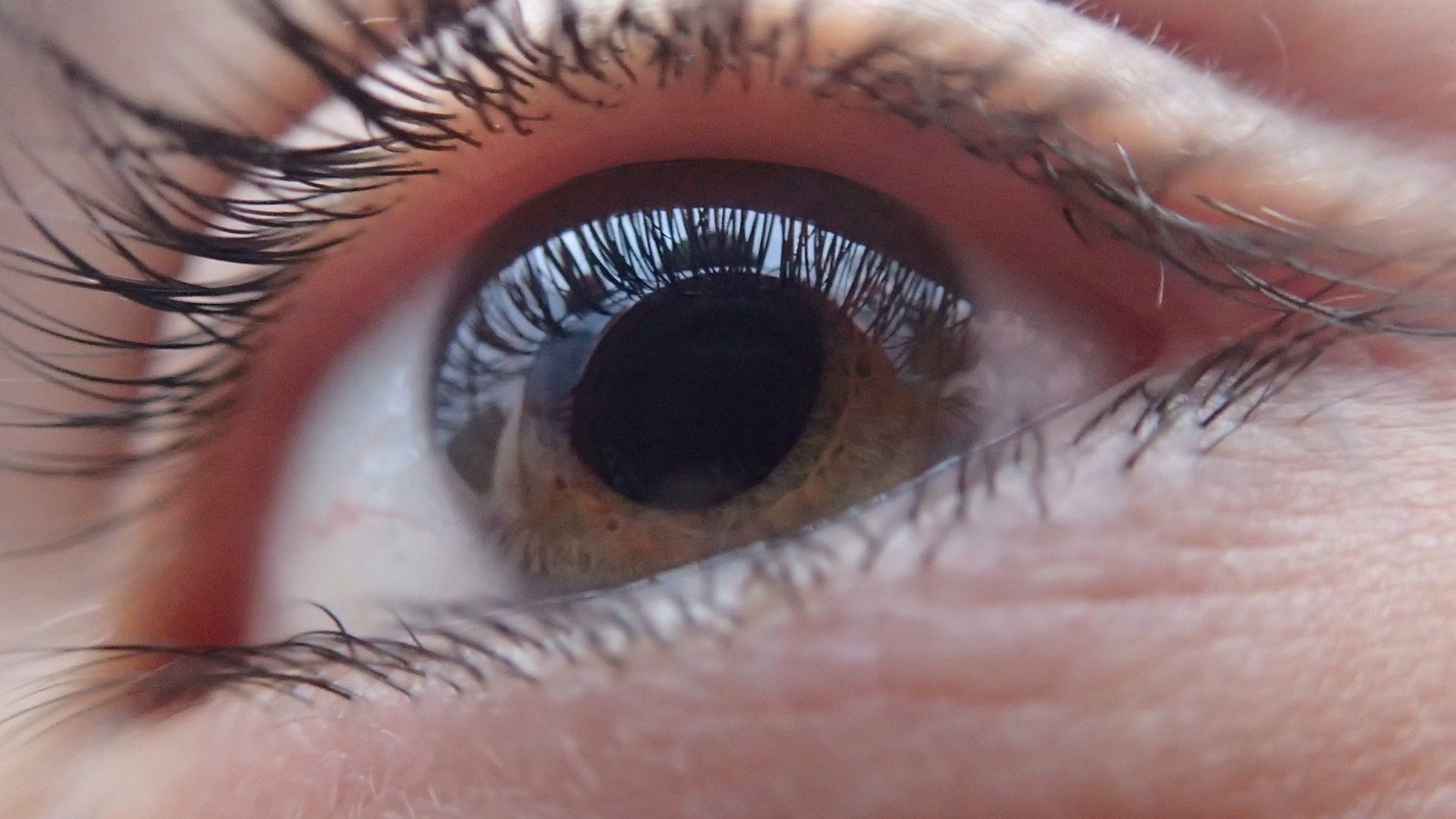
Night blindness: causes, symptoms and treatments
Nyctilopia is most dangerous when some people who has feeling trouble seeing in the dark gets behind the wheel of a car.
Headlights of oncoming cars and streetlights on the road can make it especially difficult to see clearly and drive safely.
Which cells of eye responsible for night vision ?
One of the main cause of night Blindness is reduction in number of Rhodopsin pigment and photoreceptors present on Rod cells of eyes. The receptor cells of eye called as photoreceptors or visual cells. they are of two types rod cells and cone cells name after their shapes.
The rod cells contains a purplish pigment called as visual purple aur rhodopsin which function in dim light and at night time. they produce only poorly defined image. And the person suffering from night blindness inability to see in dim light due to reduction in number of rhodopsin pigment of rod cell of eyes. Rhodopsin pigment of rod cells only function in dim light or dark time and it is not function in bright light and only responsible for night vision.
Why we feel difficulty in seeing for moment when we go from bright light to dark ?
bright light and focusing highlight of car coming from front in night time and in daytime sunlight it split rhodopsin into a lipoprotein name scotopsin and carotenoid known as retinene or retinal by the process of bleaching.
The splitting of rhodopsin pigment depolarize the rod cells and it release a neurotransmitter passing the nerve impulse via bipolar and ganglion cells to the optic nerves.
in the dark Rhodopsin is resynthetise from scotopsin and retinal this process is known as dark adaptation and it makes the rod cells to functional it take short time for rhodopsin to be reformed. This is why on entering a dark room at day time for coming out of well lighted room at night we feel blind for a while. When we go from darkness into bright light we feel difficulty in seeing properly till rhodopsin is bleached and cons become functional. Con cells is responsible for bright light vision and coloured vision.
◆you should also visits our website https://biologysir.com and other website for civil engineer calculation at https://www.civilsir.com
■ follow on YouTube
◆name of fathers in field of Biology
● all full forms of 11th and 12th Biology
So reduction in number of rod cells and Rhodopsin pigment in your eyes leads to colour blind and inability of person to see in dark.
Night blindness symptoms
There are several symptoms of night Blindness are following
1) The main symptom of nyctolopia is difficulty seeing in the dark. You’re more likely to experience night Blindness when your eyes transition from a bright environment to an area of low light, such as when you leave a bright light of room to enter a dimly light.
2) other symptoms of nyctolopia is poor vision . You are also likely to experience poor vision when driving due to the intermittent brightness of headlights and streetlights on the road.
3) symptoms of nyctolopia person may be suffering from Blurred vision which cannot distinguish to nearest object
4) in case of nyctolopia there is reduction of rhodopsin pigment and rod cells of your eyes
5) people suffering from nyctolopia have problem in peripheral vision in which they cannot able to see vision of around
Causes of night blindness
Night blindness causes are concerned with vitamin deficiency common eye defects chronic disease and some have genetical problem. There are a number of eye conditions vitamin deficiencies and chronic
diseases that can affect your night vision and ability to see while driving at night are as follows.
1) night blindness caused due to vitamin deficiency
In developing and poor country of Asia and Africa and some parts of Europe where balance nutritional diets not taken by people, if there is Vitamin A deficiency in their diet may leads to nyctolopia.
Vitamin A consists of retinal obtained from carotene and rich source of vitamin A is carrot, butter spinach, liver,ghee, kidney, pumpkin, mustard leaves milk fish tomato coriander leaves mangoes egg egg cheese papaya. So taking a required amount of Vitamin A from diet reduce the chance of nyctolopia in people
2) deficiency of minerals zinc
Deficiency of minerals zinc in their diet leads to malabsorption of Vitamin A in your body. So both condition deficiency of vitamin A and zinc can also contribute to nyctolopia.
Although it’s rare, not getting enough vitamin A in your diet could affect your night vision. Zinc helps the body absorb vitamin A, so without zinc, vitamin A is not as effective.
Vitamin A, also called retinol, plays a role in transforming nerve impulses into images in the retina. The retina is a light-sensitive area in the back of your eye. So adequate amount of Vitamin A and zinc minerals can reduce the chance of nyctolopia
3) People who are suffering from pancreatic insufficiency, such as individuals with cystic fibrosis, have difficulty absorbing fat and are at a greater risk of having vitamin A deficiency because vitamin A is fat-soluble. This puts them at greater risk for developing nyctolopia
4) night blindness due to age factor
Night blindness depends on age factors. People of old age are suffering from so many disease of eyes and inability to see in dim light. As we age, our pupils don’t dilate in the dark as much as they should,thus reducing the amount of light that enters our eyes. The corneas also become less clear with age, increasing the amount of glare you may see
and reducing contrast sensitivity, which can make it difficult to distinguish between two nearest tiny objects at night or dim light
5) night blindness caused due to Presbiopia
Presbiopia is the condition is due to loss of flexibility of the lens. it creates difficulty in focusing on near objects it can be corrected by using convex lenses. But in older age condition presbyopia is develop and
can make focusing and adjusting to light changes more difficult. And presbyopia is one of cause of night blindness and It may also make driving at night or in the rainy season more challenging for older adults.
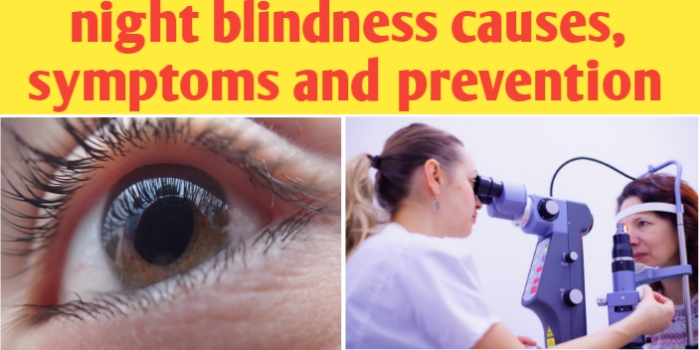
Night blindness: causes, symptoms and treatments
6) night vision problem due to Glaucoma
Over production of vitreous humour increases pressure in the eye and this crushes the delicate cells of retina causing blindness. this condition is known as glucoma. Glaucom can affect peripheral vision which are responsible for seeing around. Without peripheral vision, it is difficult to see what is going on around
you, which is especially dangerous if you are driving. Hence glucoma is also responsible for nyctolopia in older age people
7) night blindness due to Cataracts
In cataract lens and cornea becomes opaque and this is serious condition when we feel blured visions. Cataracts are a clouding of the lens of the eye which causes blurs vision
and makes it difficult to see objects clearly. Cataracts may further inhibit nighttime driving vision as many with cataracts describe much difficulty with glare and halos from oncoming headlights.
8) night blindness due to diabetes
Person suffering from diabetes have also case of night blindness and the disease known as diabetic retinopathy. It is a condition of diabetic person in the back of the eye caused by diabetes. Diabetic retinopathy can cause a significant loss of vision and is the leading cause of retinal blindness in adults ages 20-64.
9) nyctolopia due to genetic disorder
Night blindness is also called due to genetic disorder disease like retinitis pigmentosa is an uncommon genetic disorder in which dark pigment collected in the retina leads to creating tunnel vision. This condition typically affects people under 30 years of age.
10) night blindness due to usher syndrome
This genetic disease and condition that affects both hearing and vision and
older adults have a greater risk of developing cataracts. They’re therefore more likely to have nyctolopia due to cataracts than children or young adults.
11) night blindness due to sun exposure
Prolong sun exposure also harms your eyes Without proper eye protectionsun exposure can temporarily impair night vision for up to two days. Wearing sunglasses that protect against UVA and UVB rays will prevent temporary nyctolopia due to sun exposure.
Treatment for the night blindness
Some types of nyctolopia are treatable while other types are not curable. See your doctor to determine the underlying cause of your vision impairment or night blindness. Once you know the cause of the problem, you can take steps to correct your vision.
Your eye doctor will take a detailed medical history and examine your eyes to diagnose nyctolopia. You may also need to give a blood sample. Blood testing can measure your vitamin A and glucose levels.
Let your doctor know if you still have trouble seeing in dim light even with corrective lenses. Doctor should take several types of Measure for the treatment of nyctolopia
1) nyctolopia caused due to cataract Cataracts that is clouded portions of your eye’s lens are known as cataracts.
Cataracts can be removed through surgery. Your surgeon will replace your cloudy lens with a clear, artificial lens. Your night blindness will improve significantly after surgery if this is the underlying cause.
2) Vitamin A deficiency and Zinc deficiency which are responsible for night blindness can be cure by taking supplement. if your vitamin A levels are low, your doctor might recommend vitamin supplements. Take the supplements exactly as directed.

Carrot rich source of vitamin A
3) wearing sunglasses when you are working in sunlight can reduce the chance of colour blindness
4) night blindness caused due to genetic conditions that cause night blindness, such as retinitis pigmentosa, are not treatable. The gene that causes pigment to build up in the retina doesn’t respond to corrective lenses or surgery. People who have this form of night blindness should avoid driving at night.
5) You can not prevent night blindness that’s the result of birth defects or genetic conditions, such as Usher syndrome. You can, however, properly monitor your blood sugar levels and eat a balanced diet to make night blindness less likely.
6) Eating foods rich in antioxidants, vitamins A, and minerals, which may help prevent cataracts. Also, choose foods that contain high levels of vitamin A and zinc mineral to reduce your risk of night blindness.
Certain orange-colored foods are excellent sources of vitamin A, including cantaloupes,
sweet potatoes,carrots,pumpkins,butternut, squash,mangoes, spinach, collard greens,
milk, eggs
What’s the long-term outlook?
The person suffering from night blindness, should take extra precautions to keep yourself and others safe. Refrain from driving at night as much as possible until the cause of your night blindness is determined and, if possible, treated.
Arrange to do your driving during the day, or secure a ride from a friend, family member, or taxi service if you need to go somewhere at night.
Wearing sunglasses or a brimmed hat can also help reduce glare when you are in a brightly lit environment, which can ease the transition into a darker environment.



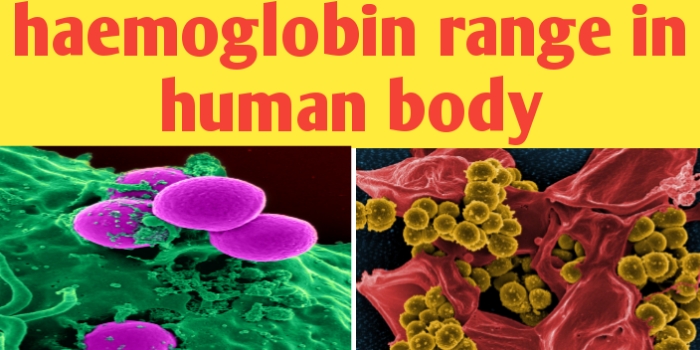
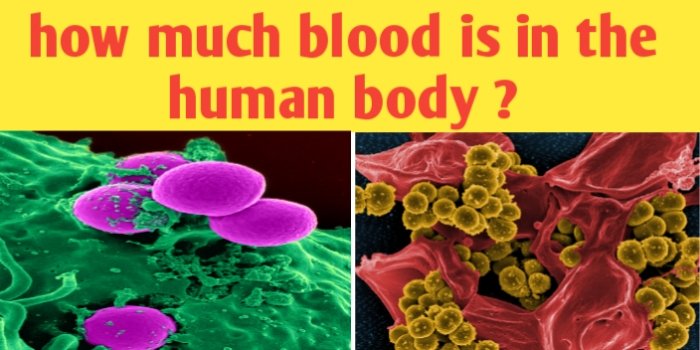
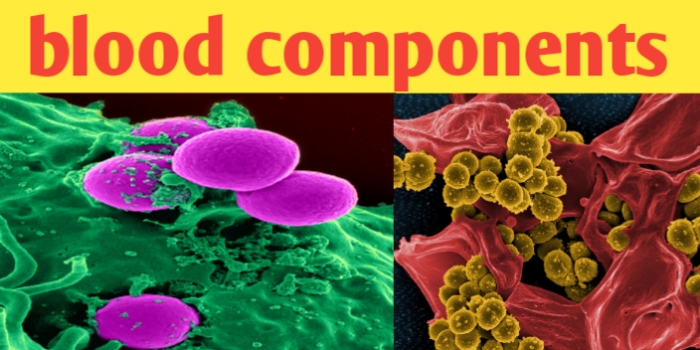
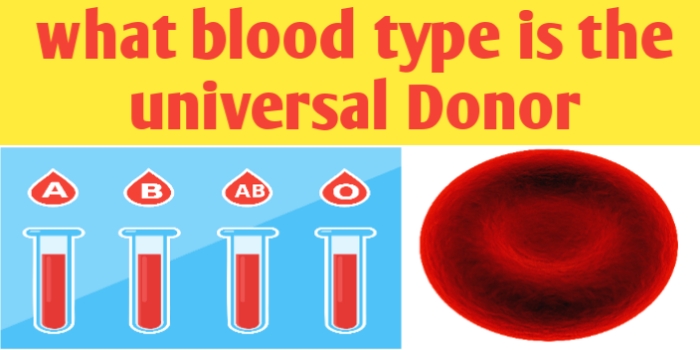
Leave a Comment